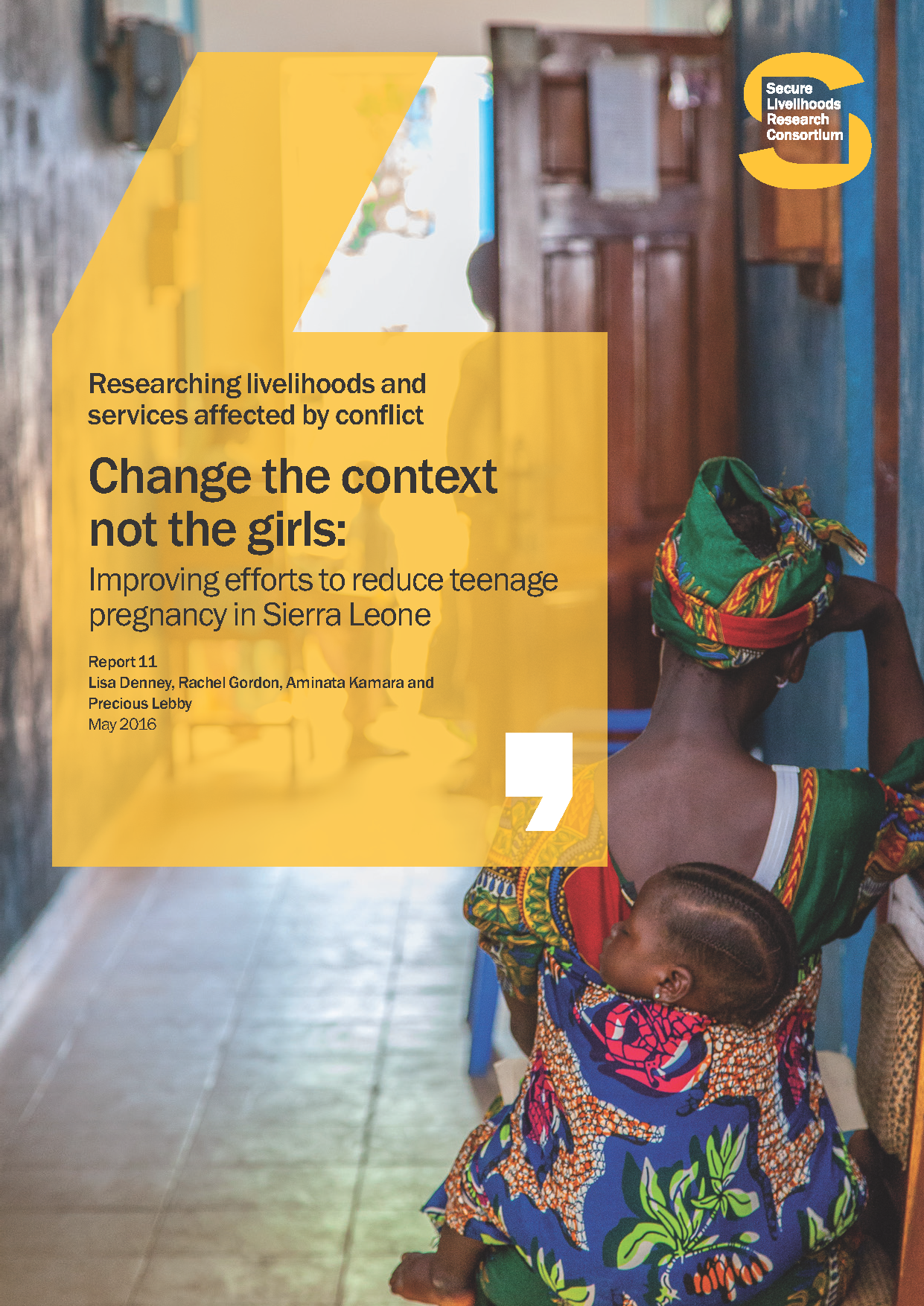In 2013 Sierra Leone ranked among the ten nations with the highest rates of teenage pregnancy in the world. Concerns about significant increases in Sierra Leone’s already high rates of teenage pregnancy during the Ebola crisis have led to redoubled efforts among policy-makers and development practitioners to address this problem. This report examines post-Ebola programming responses and asks where there is room for improvement. The central argument of the report is that common programming to reduce teenage pregnancy focus overwhelmingly on girls, rather than addressing the wider context that shapes girls’ actions and options. This approach ignores the fact that girls are getting pregnant through multiple types of sex; it assumes that knowledge promotion can lead to behavior change; and it overlooks key justice and socio-economic components of the problem. If the Government of Sierra Leone’s renewed National Strategy for the Reduction of Teenage Pregnancy is to succeed, a more contextually tailored approach is needed. To that end, five recommendations are proposed:
- Recognize and program around the multi-faceted nature of teenage pregnancy, including the overlooked justice and socio-economic aspects, and improve coordination
- Focus on the wider contexts that lead to teenage pregnancy, not just on girls’ behavior
- Programming should reflect an understanding of the different kinds of sex girls are having and the complexity of those relationships
- Real knowledge about sex should be provided to communities (including but not only teenage girls)
- Use locally respected and locally relevant channels to encourage behavior change
The briefing paper that summarized the paper is available here.
The Secure Livelihoods Research Consortium (SLRC) is a six-year, eight-country research study, led by the Overseas Development Institute (ODI) in London. SLRC investigates livelihoods, access to basic services, and social protection in fragile and conflict-affected situations. The research is funded by the UK Department for International Development (DfID), Irish Aid, and the European Community (EC). The Feinstein International Center leads SLRC research in South Sudan and Uganda in addition to its participation in the Sierra Leone research.







